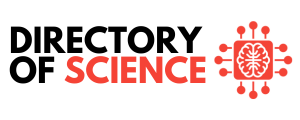What Is Science?

Science is not an area of study, an activity or an opinion. Rather, it is a view of the world. A new idea or concept which, when properly considered and introduced into existing methods, can lead to important improvements in human knowledge and to the improvement of existing systems and processes.
Science and technology go hand in hand. For example, If someone has an idea for a new product, they may develop a better version of it, or try to discover more about it. This increases their knowledge base and understanding of how things work. However, it also opens the door to new ways of doing things, and it creates new concepts.
Our nature: to be curious
The idea and the concepts that are born from science and technology become standard by the time they are commercialized. We have vehicles today that runs on nothing but science. We use all sorts of items, we didn't have before and have new things built every day.
What is science? It is not only used to describe this process, but it is also used to describe how it works. When we say we know something, we are using words like "know" and "believe". They are two different things, but we use them interchangeably because we have a common tendency to think of them as closely related.
For example, when you go to the market and ask a person what is science? You would need to ask the same question of a scientist. There is some similarity between the two, but there is also a very large difference. The scientist does not know science, nor does he or she believe it, but they study it and take notes about it.
Differences and similarities
Science and technology have many definitions. While they are all used to describe the process and result of science, there are many sub-categories of science as well. Two popular ones are the natural sciences and the social sciences. Scientists studying the natural sciences to study things like astronomy, chemistry, biology, zoology, botany, geology, etc. Scientists studying the social sciences study things like sociology, psychology, economics, anthropology, etc.
The complex relationship between science and technology is undeniable. Today, we see that each one influences the other. As a result, both science and technology are intertwined and there are no separating these two forces.
Science and technology are definitely interconnected, because the principles behind them are the same. So, which one of them do you think has the greater influence? It would be the science, or the technology, as long as you put them in different categories.
Imagine you can create life, think of new information, and get a cure for the disease with the power of the scientific method. Where would science be then?
Our curiosity makes it all possible
Science is too broad a term to define, but its effects are enormous. With everything we do, we find new information and a new way to use it, and this, of course, affects how our science and technology work.
When your child starts school year this year, be prepared for a big change. From now on, they will spend the first half of the year in class, taking notes, discussing, and learning things, and the second half of the year on tests and projects. Do you really think the first half of the year will be enough? Of course not.
Take a look at the textbook used, and read the curriculum booklets to find out how much science will affect your child's education. Do they really need all the extra science and technology? Think about it this way: It is not just the science class, it is the science and technology classroom.
